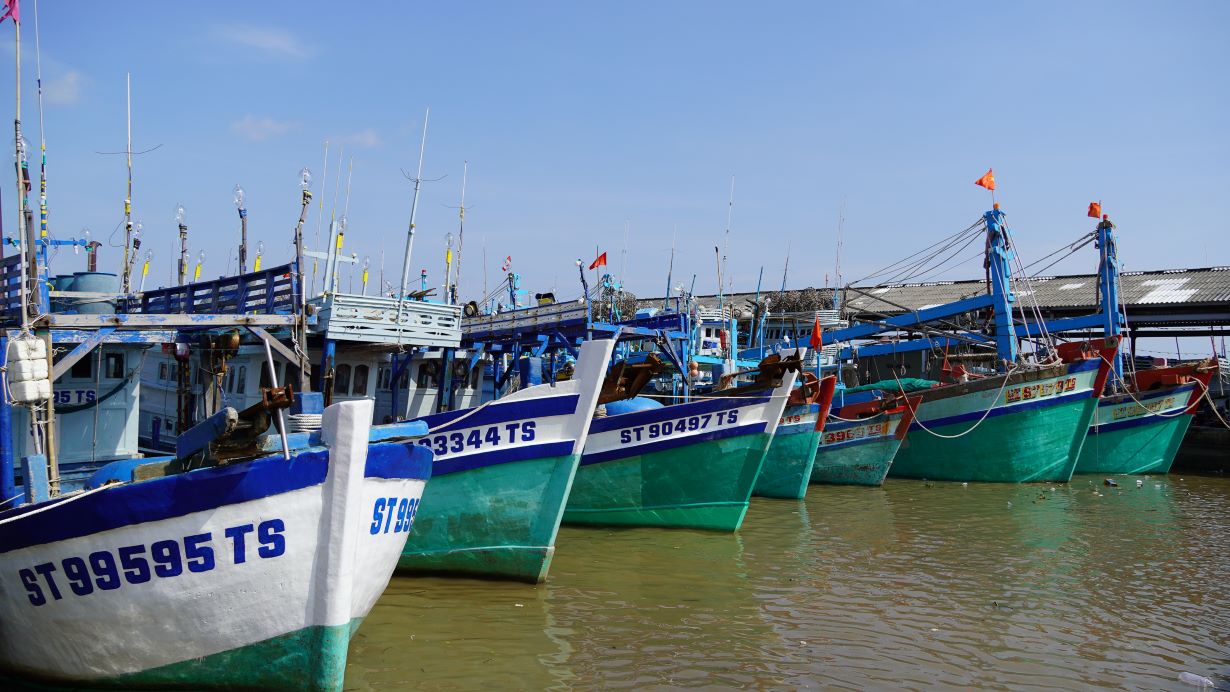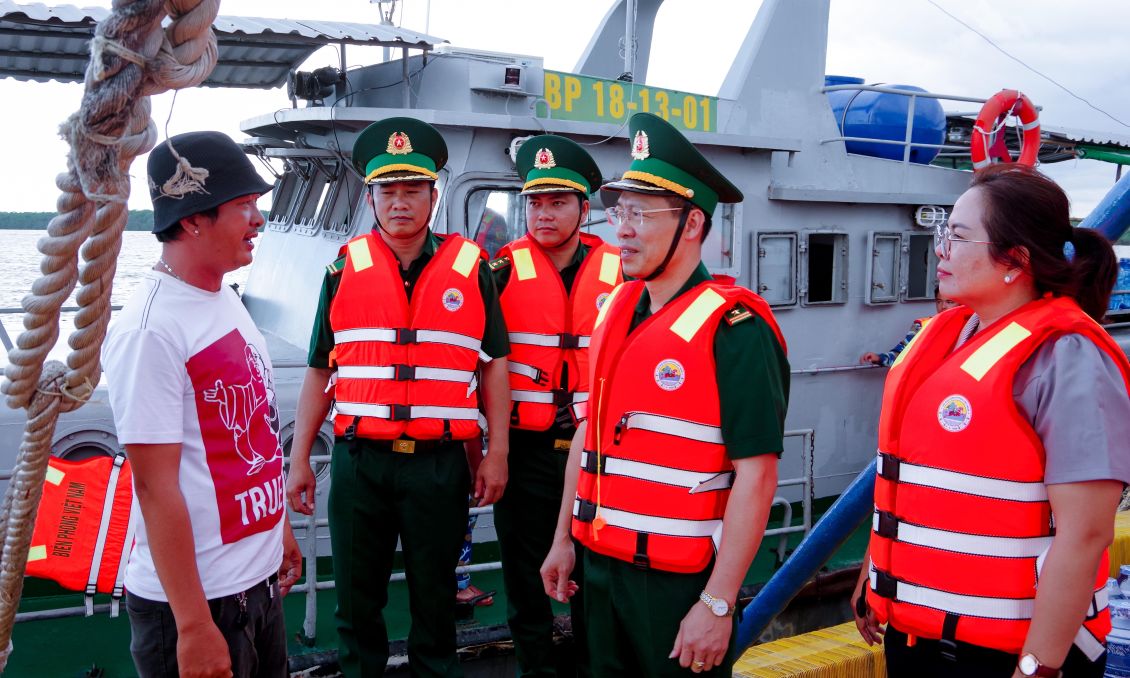Tightening control of fishing vessels
At Tran De Fishing Port (Tran De District, Soc Trang Province), immediately after preparing enough fuel, necessities and fishing gear for the departure, the ship owners all carry out the mandatory process of going to the Border Guard Station and the Port Management Board to complete the departure procedures.

Fisherman Quach Xuan Truong said that in order for the boat to be allowed to go to sea, it is necessary to complete the necessary procedures and documents such as crew membership cards, departure request cards, captain's license and especially the journey monitoring device must operate normally.
"The journey monitoring device must ensure continuous operation, without losing signal. If there is a problem, it must be reported to the Port Management Board for timely handling. Fishermen are only allowed to exploit in Vietnamese waters, absolutely not to violate foreign waters," Mr. Truong emphasized.
According to the Tran De Fishing Port Management Board, the inspection of fishing vessels arriving at the port is being implemented very strictly. The inspection contents include monitoring seafood shipments, monitoring the operation of journey monitoring devices, as well as collecting complete fishing logs for each sea trip. The unit also regularly coordinates with the IUU team, the provincial Fisheries Department and the Border Guard Station to strictly control the activities of fishing vessels from the time they leave the port until they return.
Do not let fishing vessels violate foreign waters
The Department of Agriculture and Environment of Soc Trang province said that the whole province currently has 792 fishing vessels registered to be granted fishing licenses. Of which, 341 ships with the largest length of 15 m or more have installed voyage monitoring equipment, reaching a rate of 100%. All of these vessels have completed "3 no" registration (no registration, no inspection, no license) and are fully updated on the national fisheries database system VnFishbase.
Since the beginning of 2024, Soc Trang province has not recorded any cases of fishing vessels illegally exploiting seafood or crossing the border to operate in foreign waters.

According to Ms. Quach Thi Thanh Binh - Deputy Director of the Department of Agriculture and Environment of Soc Trang province, the management of fishing vessels not only focuses on monitoring cruise equipment but also closely coordinates propaganda, inspection and support for fishermen. Monitoring the location of fishing vessels through the monitoring system helps authorities proactively remind fishermen to comply with permitted sea areas, while strengthening patrolling and controlling at sea to support fishermen when they encounter incidents and promptly handle violations if any.
Ms. Binh said that the locality is also gradually instructing fishermen to apply electronic fishing logs instead of traditional recording methods. This is a solution to increase transparency in fishing activities, while helping fishermen have more clear evidence to prove that they are operating in accordance with regulations and not violating foreign waters.
"For ships that have not extended their exploitation licenses or have not been inspected, the authorities have reviewed and clearly identified these cases as currently ashore and not operating. According to regulations, even if ships are no longer launched but are still in the management system, they must still be monitored. Every 10 days, the location of the ship will be recorded and reported to the authorities. Ships that have not completed the procedures are not allowed to depart, and supervision is strictly implemented by the Border Guard Station and local authorities," said Ms. Binh.
Also according to the leader of the Department of Agriculture and Environment of Soc Trang province, for ships that are no longer qualified to operate, the locality will resolutely not allow them to depart. Some ships have been damaged and are no longer able to operate, but there is still registration information on the system, the authorities will continue to monitor and will guide the implementation of the giai phapment in accordance with regulations.











